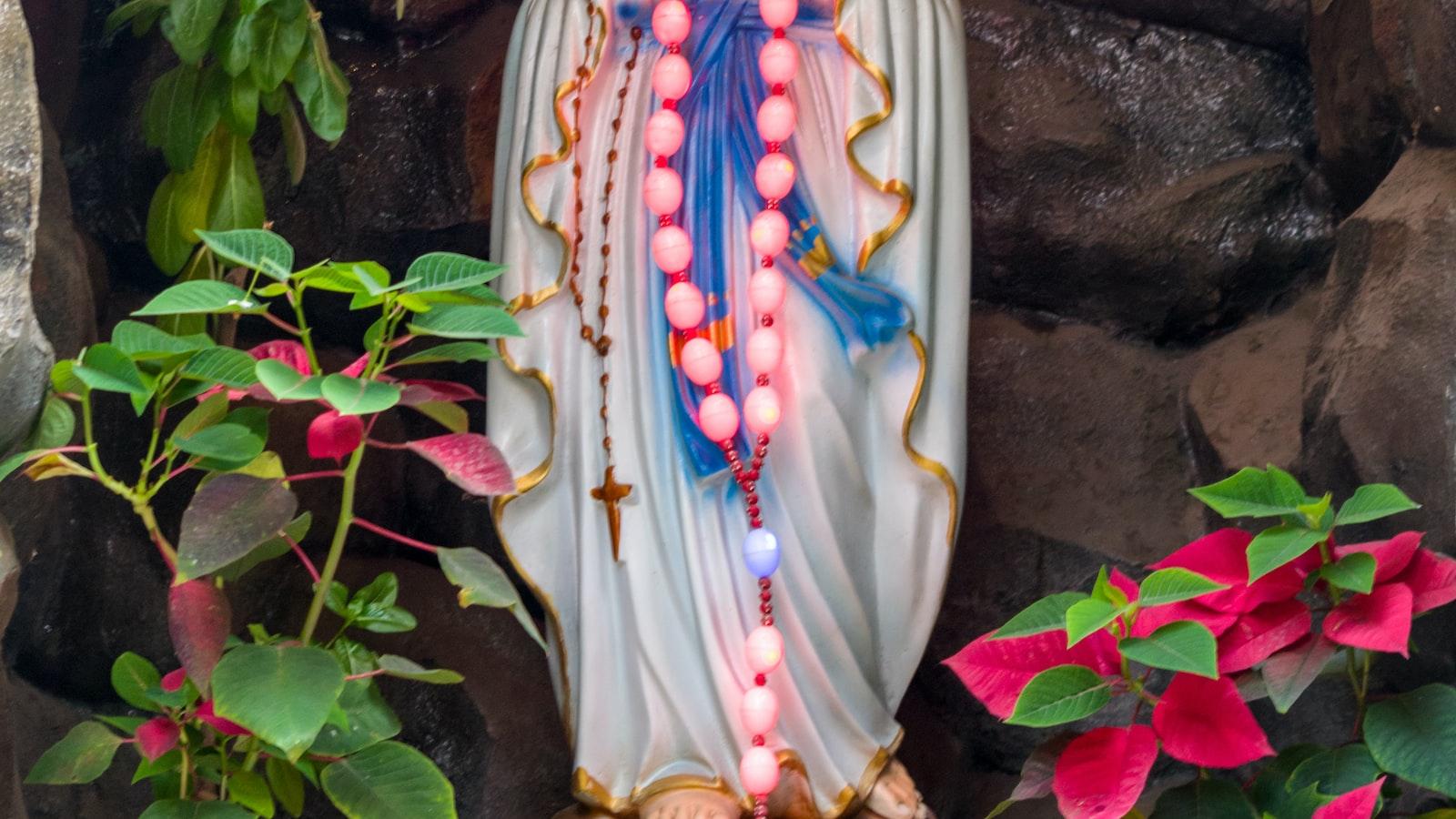Did you ever wonder about the biblical meaning of the days of the week? Well, you’re in luck because we’re diving into the fascinating significance behind each day according to the Bible. From a casual glance at your calendar to deep-rooted religious symbolism, let’s take a closer look at the biblical meanings that lie within our weekly routine.
Sunday: The Significance of the First Day of the Week in the Bible
In biblical times, the days of the week held great importance and symbolism. Each day had its unique meaning, and Sunday, as the first day of the week, carried significant significance. Let’s explore the biblical meaning and symbolism behind Sunday.
The Creation and Resurrection Connection
Sunday derives its biblical significance from the creation story in the book of Genesis. According to the Bible, God created the world in six days and rested on the seventh day, which is now observed as the Sabbath day. As Sunday follows the Sabbath, it symbolizes a new beginning and the start of a new week. It links the day of rest (Saturday) with the day of resurrection, as Jesus Christ rose from the dead on a Sunday, also known as the “Lord’s Day.”
A Day of Worship and Reflection
In Christianity, Sunday holds deep religious significance as it is the day dedicated to worship and reflection. It is a time for believers to gather together as a community, offering prayers, singing hymns, and studying scripture. Sunday serves as a reminder to honor God and His sacrifice, a day for believers to nurture their spiritual growth and find solace in the presence of God.
A Day of Renewal and Hope
Sunday represents renewal and hope for Christians. Just as the sun rises, chasing away the darkness of night, Sunday signifies a fresh start and the promise of a better week ahead. It is a day to shed the burdens of the past week and embrace the new possibilities that lie ahead. The biblical significance of Sunday reminds believers that with each new day, they can find strength, joy, and hope in their faith.
The Sunday Table
In many Christian households, the Sunday table serves as a symbol of togetherness and nourishment for the body and soul. Families gather around the table to share a meal, exchange stories, and strengthen their bond. It is a time to express gratitude for the blessings received and seek comfort in one another’s presence. The Sunday table fosters unity and love, reminding believers of the importance of family and community.
| Day | Meaning |
|---|---|
| Sunday | Renewal and hope |
| Monday | Start of a new work week |
| Tuesday | A day of strength and courage |
| Wednesday | Midweek reflection and perseverance |
| Thursday | A day of gratitude and thanksgiving |
| Friday | Anticipation of rest and recreation |
| Saturday | Sabbath day of rest |

Monday: Discovering the Meaning Behind the Often Overlooked Day
When it comes to the days of the week, Monday often gets a bad rap. It’s the day many of us dread, as it marks the end of the weekend and the start of the workweek. However, there is much more to Monday than meets the eye. In fact, Monday holds a significant biblical meaning that is often overlooked.
In Christianity, Monday is believed to represent new beginnings and fresh starts. According to the Bible, Monday symbolizes the day when God created light in the world. Just as a new day brings light after darkness, Monday serves as a reminder that each week offers a fresh opportunity to grow spiritually and embark on a new journey in faith.
In addition to its association with new beginnings, Monday is also linked to the concept of stewardship. As Christians, we are called to be good stewards of our time, talents, and resources. Monday serves as a reminder to use our gifts wisely and to be intentional in our actions, as every decision we make has the potential to impact others and honor God.
Furthermore, Monday signifies the importance of rest and renewal. In the book of Exodus, God commanded the Israelites to rest on the Sabbath, which is traditionally observed from Friday evening to Saturday evening. After a day of rest, Monday offers the opportunity to reflect, recharge, and prepare for the week ahead. It is a time to seek God’s guidance and find strength in His promises for the days to come.

Tuesday: Unveiling the Lesser-known Symbolism of the Third Day
As we delve into the intriguing realm of biblical symbolism, we uncover a plethora of hidden meanings and mysteries behind each day of the week. Today, we turn our attention to Tuesday, often overlooked and underestimated in its significance. Join us on this fascinating journey as we unveil the lesser-known symbolism of the third day.
A Day of War and Courage:
In biblical tradition, Tuesday holds a powerful connection to themes of warfare and bravery. It is the day associated with Mars, the Roman god of war, and the planet’s fiery energy aligns with the fierce determination and courage displayed by God’s warriors throughout history. From David’s triumph over Goliath to the Israelites’ conquest of Jericho, Tuesday represents a call to arms, urging us to embrace our inner strength and stand fearlessly against the battles that arise in our lives.
The Blessing of Redemption and Restoration:
Embedded within the fabric of Tuesday’s symbolism lies the promise of redemption and restoration. The third day references one of the most significant events in biblical history – the resurrection of Jesus Christ. Just as Christ emerged from the tomb on the third day, Tuesday serves as a reminder that even in our darkest moments, there is always hope for new beginnings and triumphant rebirth. It urges us to have faith in our journey of transformation, knowing that God’s healing and restorative power can lift us from any depth.
Harmony and Creativity:
While often overshadowed by its more prominent counterparts, Tuesday exudes an enchanting energy of harmony and creativity. It is a day that encourages us to tap into our artistic abilities and embrace the beauty that lies within our souls. Just as God created the world in six days, Tuesday beckons us to participate in the co-creation process, utilizing our unique gifts to bring joy, inspiration, and innovation into the world. It serves as a gentle reminder to set time aside for self-expression, whether through art, music, or any other creative endeavor that enriches our lives.
| Symbol | Meaning |
|---|---|
| Sword | Represents the courage to face spiritual battles and overcome adversity. |
| Phoenix | Symbolizes resurrection and the eternal cycle of life, death, and rebirth. |
| Palette and Brush | Signifies the harmony between spirituality and creative expression. |
| Olive Branch | Represents the peace and unity that can arise from embracing one’s courage and creativity. |
Join us in exploring the fascinating symbolism of each day of the week as we continue our series. Stay tuned for our next installment as we unravel the mysteries of Wednesday and shed light on its profound biblical meaning.

Wednesday: Exploring the Intriguing Origins and Cultural Significance of the Fourth Day
In our quest to understand the biblical meaning behind each day of the week, today we delve into the origins and cultural significance of Wednesday. While many may perceive Wednesday as just another day, this day of the week holds intriguing symbolism and historical relevance that stretches back centuries. Prepare to embark on a journey through time and uncover the secrets behind this enigmatic day.
Wednesday finds its roots in Old English and Germanic languages, where it was known as “Wōdnesdæg” or “Wōdnesdæg,” meaning “Woden’s day” or “day of Odin.” Woden or Odin, the Norse god associated with wisdom, sorcery, and poetry, holds immense cultural significance in Germanic mythology. By dedicating a day of the week to this deity, our ancestors acknowledged the importance of wisdom and intellectual growth in their society.
Throughout history, Wednesday has also been associated with various celestial bodies. In astrology, Wednesday is influenced by the planet Mercury, known as the messenger of the gods. This connection infuses the day with attributes of communication, learning, and adaptability. Just as Mercury speeds through the skies, Wednesday encourages us to embrace curiosity and expand our knowledge by actively seeking new experiences.
In many cultures, Wednesday holds spiritual significance and is associated with rituals and divination. For instance, in ancient Rome, priests would offer sacrifices on Wednesday to honor the god Mercury. In Nordic traditions, Wednesday was believed to be a particularly auspicious day for casting spells or seeking guidance from the spirit world. These practices highlight the deep spiritual connection our ancestors attributed to this midweek day, considering it a bridge between the mundane and the metaphysical.
So there you have it! We dove into the fascinating world of the biblical meaning of the days of the week. From Monday, symbolizing the beginning of creation, to Sunday, representing the day of resurrection, each day carries its own unique significance and holds a special place in religious history.
It’s remarkable how something as seemingly ordinary as the days of the week can have such profound meaning rooted in ancient scriptures. Whether you’re a devout believer seeking a deeper understanding or simply curious about the origins of our modern calendar, exploring the biblical significance of the days of the week adds an extra layer of depth to our everyday lives.
While the interpretation and understanding of these meanings may vary among different faiths and cultures, it’s undeniable that the biblical influence on our understanding of time and the rhythm of life is undeniable.
So, the next time you glance at your calendar or plan your week ahead, take a moment to ponder the deeper meaning behind each day. Reflect on the divine symbolism embedded within our daily routines and appreciate the rich tapestry of history that continues to shape our lives today.
We hope this article shed some light on the biblical meaning of the days of the week and left you with a newfound appreciation for the intricate details of our religious heritage. From Monday blues to Sunday serenity, may each day be a reminder of the divine presence in our lives.
